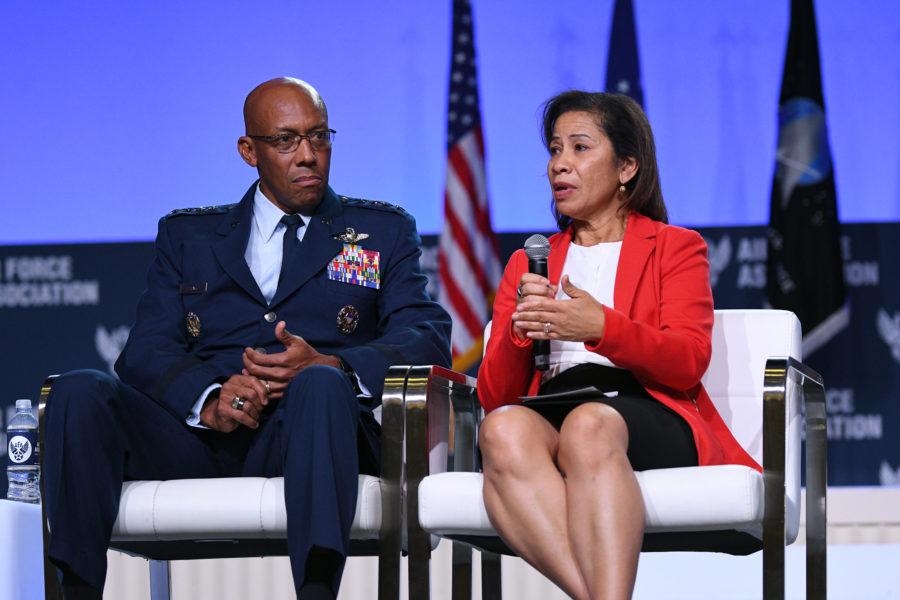The Air Force’s top officer-and-spouse duo shared a personal reason they take family readiness to heart in a town hall talk on the final afternoon of AFA’s Air, Space & Cyber Conference.
Chief of Staff of the Air Force Gen. Charles Q. Brown Jr. and his wife Sharene said caring for their son with autism has helped to inform improvements to the Defense Department’s Exceptional Family Member Program and that EFMP families have, in turn, informed a new quality-of-life initiative called Five to Thrive.
Sharene Brown revealed Five to Thrive for the first time during the town hall.
When the Browns go on base visits as a couple, he peels off one way “for mission stuff” while “she’s doing Airman and family things,” Gen. Brown explained during the town hall Sept. 22. Those experiences helped shape Five to Thrive, Sharene Brown said, which will address issues related to housing, education, child care, spouse employment, and health care—in particular, access to health care and mental health care.
Without going into a lot more detail about the new effort, Sharene Brown said it’s “so that we can make sure that our families are doing well.” She added that for families in the Defense Department’s Exceptional Family Member Program, the five focus areas “are our main focus—not only for us, but for all of you.”
The Browns shared, with his permission, that one of their two sons has autism. He’s an adult now and blogs about it, “so he’s made this a positive,” Sharene Brown clarified.
It’s also meant they’re aware of the challenges of caring for someone while navigating the DOD system. Gen. Brown revealed that the family managed to stay stateside the first 24 years of his Air Force career to care for their son.
Sharene Brown referred to the family’s experience in the Exceptional Family Member Program as “being part of the EFMP family.”
Gen. Brown summed up recent improvements to the program that the couple have taken part in devising: streamlining some of the processes for accessing care and especially having brought in “a highly qualified expert to really focus on improving this process—because it is a process that had too much bureaucracy in it,” Gen. Brown said.
A new method tested this summer, and rolling incrementally, created something like “a speed pass if you have a minor issue,” Gen. Brown said.
A central way for EFMP families to figure out what services will or won’t be available at their next duty station is also getting up and running, so that “you get an idea—based on the condition you’re dealing with,” Gen. Brown said, “what’s [the likelihood] that you’ll be able to go” and “to ensure that you have support for your family member.”
Each time Sharene Brown travels to a base with Gen. Brown, she tries to meet with two or three EFMP families “to hear their story and hear their frustration—or how well we’re doing or not doing,” Gen. Brown said, referring to leaders.
“And I applaud her for doing that—because every family has a story.”

